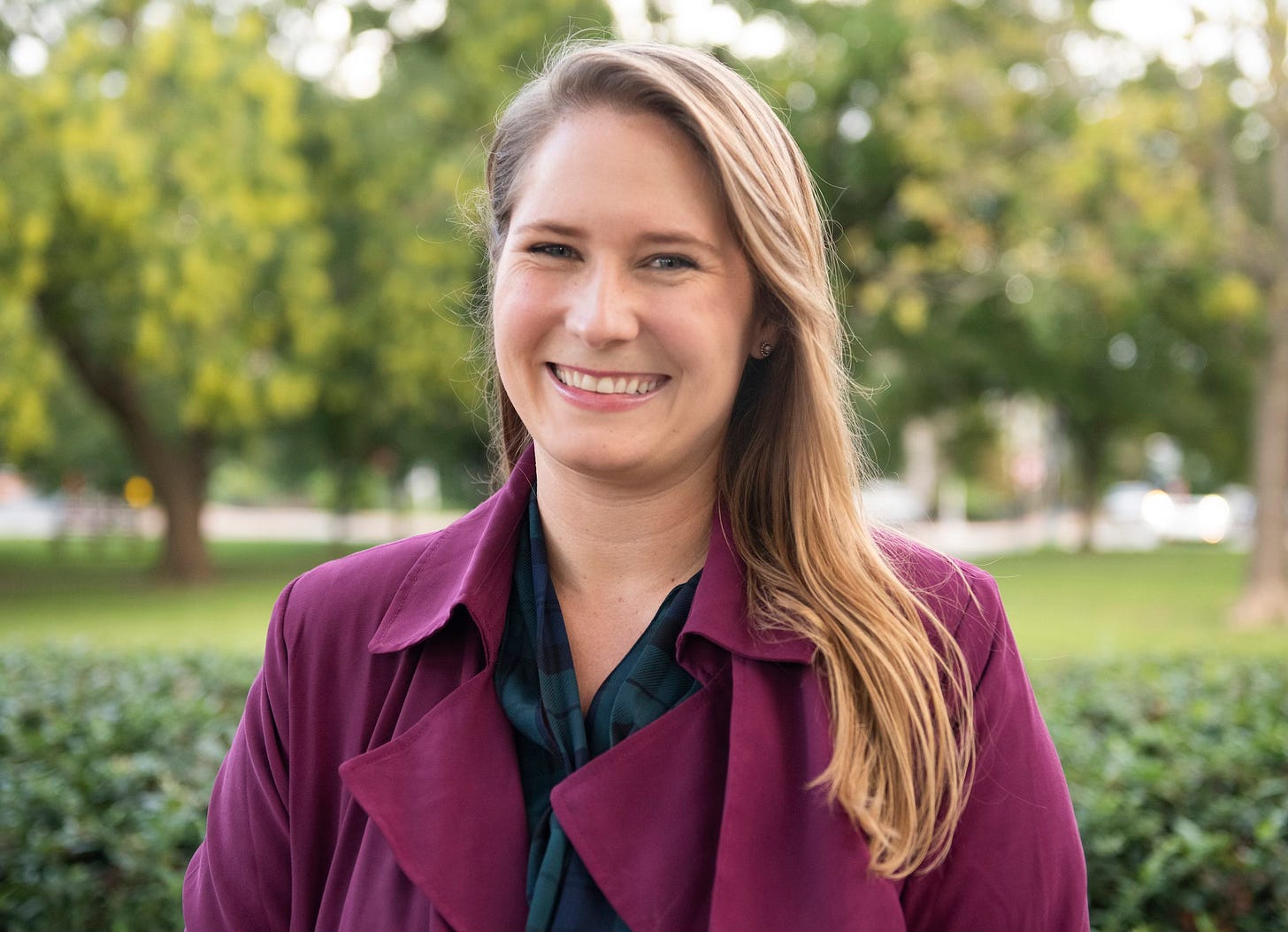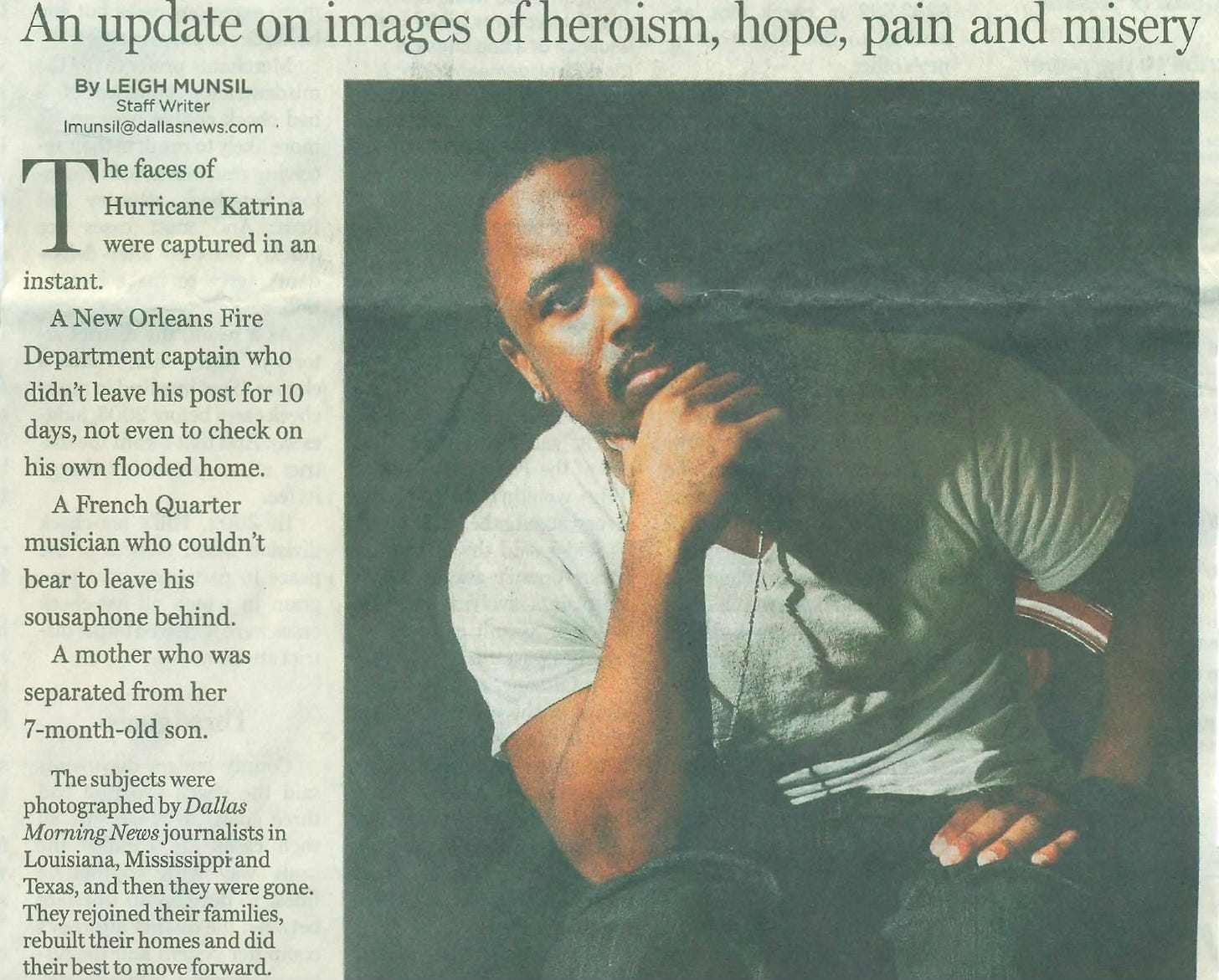What is your current job?
Editor in chief of the San Antonio Report, a local nonprofit newsroom in San Antonio, Texas, covering local government, business, development, arts and culture and more community news. I came to this role after 10 years in political journalism in Washington, D.C., so you may know me from that world, but I'm passionate about building the future of local news and decided it was time to put some skin in that game, so I moved to Texas!
What was your first byline?
In my first year at the Dallas Morning News, I got to flex my writing muscles in a way that absolutely shaped me as a journalist. In high school, I had been on a mission trip to New Orleans in the spring following Hurricane Katrina, and I wrote a blog post about a visit to the Ninth Ward that solidified in my mind the absolute privilege it is to go places others can't and tell stories that matter. So when I had a chance in August 2010 as a very green reporter for the Dallas Morning News to work with the newspaper's library staff to track down the "Faces of Katrina," or the people who had been photographed at the time of the flood and tell their stories five years later, it felt like a full-circle moment. Finding and interviewing the subjects wasn't easy, and I am so proud of the writing that I did on that project, along with the excellent photo work by a group of Dallas Morning News journalists that I was honored to work with. The full clip from the "Faces of Katrina" project is attached, I'm not sure a digital version exists anymore. That project has always been in the back of my mind as the sort of storytelling that only local newsrooms can do — and I have carried that sensibility into my work now as the editor of the nonprofit San Antonio Report.
What was your first real job in journalism?
I went to the Walter Cronkite School of Journalism and Mass Communication at Arizona State University, so I got started pretty early in my college career writing and reporting at a number of places — particularly at the school newspaper, The State Press, where I later became the editor in chief, as well as internships at the Arizona Republic and Arizona Capitol Times and a summer gig at the Orange County Register. All of that led up to my first real job in journalism as a staff writer at the Dallas Morning News through a year-long fellowship funded by the Intercollegiate Studies Institute's Collegiate Network.
How did you get it?
So, I am a big nerd. I am also intensely strategic, and when I graduated from college — 2010, old, ugh — I was graduating into a recession and facing one of the toughest job markets journalism has ever seen. I knew getting a job out of college and after my fellowship was going to be hard, especially because basically every newsroom in the country had seen my resume by this point. So I made a very long list of everywhere I wanted to work, ranked by likelihood of actually getting the job. It read, basically, New York Times, very unlikely, Politico, very unlikely, CNN, not a chance, etc. etc.
But it also had a category for who I knew that could help me get there — and who knew somebody else they'd be willing to introduce me to. I knew that political journalism was my likeliest path, so I put a two-week-long trip to D.C. on the books, crashed on a friend's couch and set up coffees with everyone who would meet with me to ask for career advice and get on their radar for any openings. I sent them emails with subject lines like "via Jason Manning — Leigh Munsil coffee" so that the name they knew, in this case my ASU student media adviser Jason, would be the first thing they saw and they would actually take the meeting. I give that example because that is a real example — through Jason I met with Chris Cillizza, who didn't have a job for me when we had coffee in July 2011 (when I was job hunting after my DMN fellowship ended), but who I ended up sitting next to at CNN years later, eventually leading to a great job as editor of “The Point with Chris Cillizza” starting in 2018.
I possibly could have stayed on after my Dallas Morning News fellowship and transitioned to staff, but the timeline was pretty unclear in terms of whether it was a permanent job, so I went to Washington again to try my luck there. I turned out to be very lucky, landing a web producer gig at Politico in an interview that took place about two hours before I flew back to Arizona, dejected, and the rest — as they say — is history.
What advice do you have for people looking to break into journalism?
Be strategic. No one will just hand you a job, but almost anyone will have coffee with you — especially if you know someone they know and pull that string to get the meeting. Make an actual list of the places you want to end up, and draw out a path for how to get there. Nothing great happens for you by accident. Dream big and work hard and you'll be amazed where you end up.
Find Leigh on San Antonio Report, LinkedIn and X.





